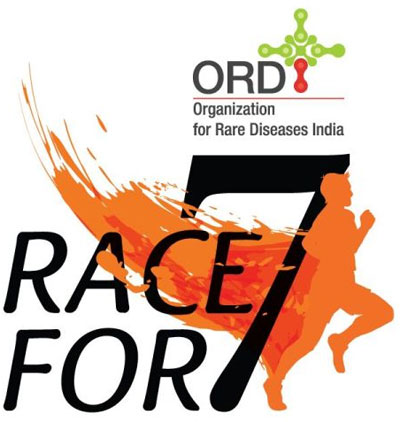Introduction
Maple Syrup Urine Disease (MSUD) is a rare inherited metabolic disorder in which the body cannot process certain amino acids properly leading to their accumulation. The condition has this name from the peculiar sweet odor of affected infants’ urine.
BCKDC (branched-chain alpha-keto acid dehydrogenase complex) is an enzyme which processes three important amino acids: leucine, isoleucine, and valine, also called BCAAs (branched-chain amino acids). This enzyme complex is lacking in the MSUD affected infants. BCAAs are commonly found in foods rich in protein, such as meat, eggs, and milk. Absence of this enzyme leads to increased levels of BCAAs in the body causing physical and neurological disorders.
Symptoms
It is first characterized by the sweet smelling odor of infants’ urine. This odor usually can be detected within a few days of childs’ birth. The following symptoms include poor feeding, vomiting, lack of energy (lethargy), abnormal movements, and delayed development. If untreated, this disease can lead to seizures, coma, and death.
Other symptoms include:
- a distinctive maple sugar odor in earwax, sweat, and urine
- irregular sleep patterns
- alternating episodes of hypertonia (muscle rigidity) and hypotonia (muscle limpness)
- high-pitched cry
- neurological deficiencies
- poor growth
Classification/Types
- Type 1- Classic MSUD
The most common and most severe form is classic MSUD in which there is little to no enzyme activity. Most infants with classic MSUD show symptoms within 2-3 days. The infant’s condition further deteriorates with the progression of disease and then starts to show neurological defects with increasing hypertonia and spasticity leading to seizures and coma. Further classic MSUD can lead to respiratory failure leading to fatality.
2. Type 2- Intermediate MSUD
Intermediate MSUD is characterized by greater levels of residual enzyme activity than observed in classic MSUD. The onset and symptoms of intermediate MSUD can be neonatal or identified later in life around 5 months to 7 years. Symptoms are similar to those of the classical form and are susceptible to the same degree of neurologic complications as those with classic MSUD.
3. Type 3- Intermittent MSUD
It is usually characterized by normal growth and intellectual development. These infants experience symptoms when in stress during some infection.
4. Thiamine-responsive MSUD
It is similar to Intermediate MSUD but responds to treatment with thiamine (vitamin B1). Affected infants respond to large doses of thiamine, which plays a role in the BCAA enzyme complex. It is beneficial by boosting residual enzyme activity but would still need dietary restrictions.
Cause
MSUD is caused by changes or mutations in one of four different genes: BCKDHA, BCKDHB,DBT and DLD which lead to absent or decreased activity of human branched-chain alpha-ketoacid dehydrogenase complex (BCKAD) enzymes.
Inheritance
MSUD follows autosomal recessive inheritance. When defective alleles of genes are inherited by the infant from both the parents, it leads to occurrence of symptoms. If a person is a carrier for the disease (one defective allele), he/she doesn’t show symptoms.
Frequency and prevalence
Maple syrup urine disease affects an estimated 1 in 185,000 infants worldwide. The disorder’s estimated incidence is about 1 in 380 newborns, occurring much more frequently in the Old Order Mennonite population. The prevalence of MSUD is 1 in 100,000 in India.
Diagnosis
The maple syrup odor in an infant’s urine is a very peculiar feature that, together with appropriate symptoms, can be diagnostic enough to start therapy. Plasma BCAAs and urine organic acids are carried out initially as confirmatory tests.
Newborn screening programs also help in detecting MSUD. Tandem mass spectrometry has aided in the diagnosis of MSUD by measuring BCAAs levels. Similar to all inborn errors, infants with mild forms of the disorder can be missed by newborn screening as their amino acid levels may remain within normal range initially.
Prenatal detection is done either through chorionic villus biopsy or by amniocentesis. Molecular genetic testing for mutations in the BCKDHA, BCKDHB, DBT and DLD genes is rarely available to confirm the diagnosis. These testing can be made necessary for at-risk relatives to detect carriers and prenatal diagnosis for at-risk pregnancies.
Treatment/Management
There is no cure for MSUD but dietary changes can be accommodated to reduce the effects and complications of the disease. The treatment involves lifelong maintenance of a restricted diet to control the levels of BCAAs in the body. Synthetic nutrient formulas are available for affected MSUD infants for proper growth and development lacking BCAAs. These affected children need to be regularly monitored to control serious complications.
The risk of metabolic problems always remains even if affected individuals follow the specialized diet strictly. Various techniques like dialysis or hemofiltration are used to reduce plasma leucine levels.
Liver transplant is considered for severely affected individuals but this technique poses challenges leading to various complications and is also an expensive procedure.
Genetic counseling is also recommended for affected individuals and their families.
Other names of the disease
- BCKD deficiency
- Branched-chain alpha-keto acid dehydrogenase deficiency
- Branched-chain ketoaciduria
- Ketoacidemia
- MSUD
- BCKDC deficiency
- branched-chain ketoaciduria
- branched-chain ketonuria I
Content last update on: 28th October 2021
Content Curated by: Ms.Suruchi Trehan, M.Sc. in Biomedical Sciences from Delhi University and currently working as a research fellow at CSIR-IGIB, Delhi
References:-
- https://rarediseases.org/rare-diseases/maple-syrup-urine-disease
- http://www.rarediseasesindia.org/rarediseaseslist
- Strauss KA, Puffenberger EG, Carson VJ. Maple Syrup Urine Disease. GeneReviews, 2006 Jan 30.
- https://www.healthline.com/health/maple-syrup-urine-disease
- https://www.nhs.uk/conditions/maple-syrup-urine-disease/
- https://medlineplus.gov/genetics/condition/maple-syrup-urine-disease
- Blackburn PR, Gass JM, Vairo FPE, et al. Maple syrup urine disease: mechanisms and management. Appl Clin Genet. 2017;10:57-66.



